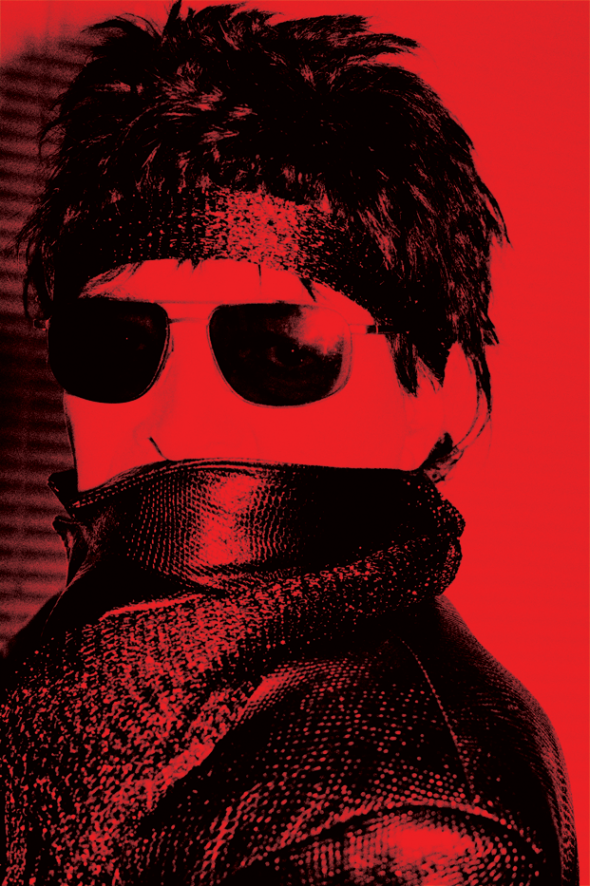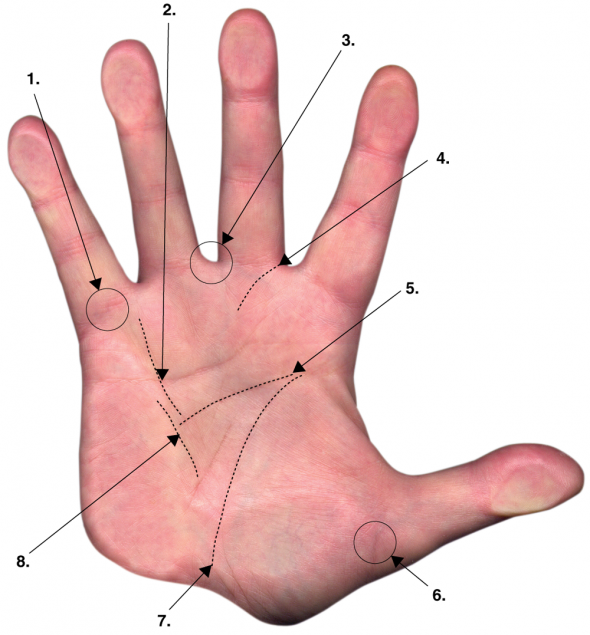
Photograph by Kava Gorna
Alan Vega has been making people all over the world shudder with anxiety and awe through his cathartic musical intuition for over 35 years. As one half of the monolithic duo Suicide, as a solo artist and as a collaborator, Vega has confronted audiences with his legendary brand of off-the-wall howling and electronic programming. While notorious for passionately antagonistic live performances and a shock-and-awe aesthetic, Vega has grown into his own mythical skin, proving that while it’s easy to be jaded in such a watered-down world, art still has its place. Between his persistent dedication to the act of creation and authentic knack for the eccentric, Vega’s discography has slid under the mainstream radar yet maintains its potential as music that can exist well into the future.
Set the scene in New York when Suicide formed.
It was really bad in New York. The city was crumbling. There wasn’t that much happening at the time, especially when Suicide started. It was the whole pre-punk thing until the Ramones came along. We were the only thing that was happening. The city was in pretty bad shape – but it was the best of times and the worst of times.
Aside from Suicide, what else were you up to at the time?
I was showing my art and doing my music the whole time. I was creating sculptures, working with light, images and all kinds of stuff. I’m still doing it, though not as often. I complete a couple of pieces a year. I had a big show about two-and-a-half years ago at the Deitch Gallery. I was pretty much flat out broke, but loved doing it and still do.
Which do you find more expressive, music or visual art?
They’re pretty much both even. There are different types of [artistic] experiences, but it’s all part of the same thing. It’s like taking my fingerprints. Whatever I do just comes out of me, no matter what. I write all the time too. I’ve written books of poetry… well, some might call it poetry, but I don’t consider myself a poet.
What inspires you musically and artistically?
Everything around is inspiring – it’s all of the things you go through. It’s living in New York. It’s your parents. It’s your friends. It’s classical music and rock and roll. I remember seeing Iggy Pop for the first time. It had a tremendous impact on me. The end of the ’60s was a crazy time – the Velvet Underground started up around then. The electronic German bands, all these things pushed me. I never once considered being on stage in my life – I thought it was the last thing in the world I’d ever do. But then I saw Iggy and I realized that the way I was headed as an artist was okay, but I needed to change. I was confronted with a fork in the road and either way I’d be okay, I guess. But seeing Iggy changed my whole situation. Iggy and Kerouac. All that shit – it was a tremendous and inspiring time. It was such a rich period and there was so much great shit around, it was almost daunting.
Do you think that music and art are as revolutionary as they were in the ’60s and ’70s?
Right now I think it’s taken a backseat – there’s so much processed stuff and music has become this huge corporate thing. But I’ve been reading about artists taking more of an anti-war stance. Bruce Springsteen’s been doing it for years. In fact, he’s even done one of our songs recently – he performed the Suicide song “Dream Baby, Dream.” It was really powerful. Music needs to find its way to the front. Revolutionary music comes from the streets, it comes from anger. I’m hoping that this whole Bush bullshit will inspire the underground out there that’s really angry. Or maybe it’s going to come from China. Some dictator will die and then something will crack, or music will get worse and worse and become even more corporate. I keep making statements – even in my new solo album, it’s pretty intense.
How so?
My lyrics have always been political. They’ve always been anti-war. They still are. I’m just trying to do my best.
You’ve collaborated with so many influential artists from Pan Sonic to the Sisters of Mercy. Did any collaboration have a profound effect on you and your songwriting?
Everyone I’ve worked with has brought something new to the table. I did a remix for Death in Vegas with that Gallagher kid from Oasis. Having a chance to pull it apart and listen to his voice completely alone, I thought, “Wow. This is a really great voice.” It sounded like a latter-day Joe Cocker, man. It’s a street voice. I really enjoyed working on it, and you always leave with something. When working with Pan Sonic, after the first three seconds of listening, I said, “Yes. This is really out there.” Working with them has had a tremendous impact, teaching me to rethink a lot of things. Just knowing them has been a trip.
What’s your take on live performance?
When Suicide started, [Suicide bandmate Martin Rev] and I did not want to be entertainers. Once we did a tour in ’78, opening for Elvis Costello, which was a riot. Then we came to England to tour with the Clash. We caused mayhem every night. It was even worse – it was like going from the frying pan into the fire. Instead of focusing on the National Liberation Front, they did all kinds of shit. After starting our own tour, we played in Edinburgh at this packed place with really dim lighting. At first I thought, “We’re gonna get shit as usual.” But after the fourth or fifth song, they started moving around a little and I walked over to Marty and these big deco-disco balls went on and I looked around and was like, “Holy shit, they’re all dancing.” I was finished man. I didn’t have to attack the audience and jump onto people, and get attacked anymore. Ever since then, our lives changed. We became entertainers. Even in Texas they loved us. Fucking Bush Country. A new generation has finally caught on to us.
How do you feel about growing up today as opposed to other generations?
I wouldn’t want to be a kid today. I’ve got a boy who’s going to be eight. I feel shitty for him, but how he’s going to deal with what he’ll go through will be interesting to watch. There’s great shit out today, but there’s also a lot of terrible shit.
Are you spiritual?
I believe there may be an infinite number of universes and gods. It’s nature at work. There’s a higher power that can’t be understood and we’d be crazy if we did. What I do know is that I despise organized religion. They’re all full of shit. It’s all based on money and power. At times when I’m creating music and art, I feel connected. After you’re two-thirds through a painting or song, the piece takes over and starts telling you what to do. That’s the beauty of art. That’s true spirituality to me.
– Fred Miketa

Reading by Lena, who has no idea this palm belongs to Alan Vega.
1. Career-wise, he will ALWAYS follow his dreams. Interestingly enough, in the second half of his life, he will attain a good deal of recognition and status for what he achieves through following those dreams.
2. Not a good person with cocktail party repartee or the turning of a quick phrase – his conversational style is much more in-depth.
3. Independent of thought AND deed. Curiosity rather than safety will be his main motivation so he’ll go sticking his nose into all sorts of interesting places.
4. This is a person with a strong desire to touch the intangible. He would like to get his hands on God.
5. There is a love of travel here and a delight in the different textures, flavors and sensations of foreign places. Fortunately his digestion will support this.
6. There is a love of conversation showing in this hand, specifically conversation about philosophy and different ways of seeing the world.
7. Life is long and health here is vibrant. This will allow him to explore in many directions and take risks as his health and body will support them.
8. There is also a strong romantic bent, though he is somewhat fickle. He is either madly in love or he isn’t – no halfway measures there. He will tend to prefer eccentrics with a spiritual interest and curly hair.

